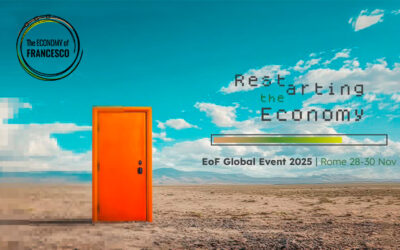On this occasion we dwell on the fundamental cornerstone of the Spirituality of Unity. Chiara Lubich shows us the way to obtain the grace of unity from the Father. (…) This cornerstone, which is typically ours, implies “something more” than is usually required of the more individual spiritualities, at least as they develop. The “something more”, as we know, is reciprocity and unity. Unity. What is unity? Is it possible to achieve unity? Unity is what God wants from us. Unity is the fulfillment of Jesus’ prayer: “May all be one, as you, Father, are in me and I in you, that they also may be in us “ (Jn. 17:21). But unity cannot be achieved through our own efforts. It can be achieved only through a special grace which the Father grants if He finds us prepared, in accordance with a precise and necessary requirement. It is mutual love, put into practice, as Jesus’ commanded… his mutual love, what he wants of us. It is not – as we know – simply spiritual friendship, agreement or mutual understanding. It means loving one another as He loved us, to the point of forsakenness: to the point of complete material and spiritual detachment from people and from things, so that we can make ourselves one reciprocally and perfectly. By doing so, we will have done our part and fulfil the conditions for receiving the grace of unity, which will not be missing, which must not be missing. … (…) We must remember that there is an added grace in our communitarian spirituality; that heaven can open up for us in every moment. If we do what our spirituality asks of us, we’ll be filled with this grace, and can do much, very much for the kingdom of God. … (…) During the next month, let us make every effort to obtain this gift always! And let us not seek it only for our own happiness, but to carry out our characteristic evangelization. You know it: “That they may be one so that the world may believe” (Jn. 17:21). The world needs faith, it needs to believe! And we are all called to evangelize. (…) May whoever observes two or more of us united (in the focolares, in the nuclei, in the units, in our meetings, or because we are together for any reason) be struck by a ray of our faith, and believe. May they believe in love because they have seen it. Let’s do this. It’s what the Lord wants from us. He wants it through our charism which has been engraved in our statutes: unity is the premise that comes before every other will of God.
Chiara Lubich
(Chiara Lubich, Conversazioni, Cittá Nuova, 2019, p. 523-524) https://youtu.be/YEth9TWpKUY




0 Comments